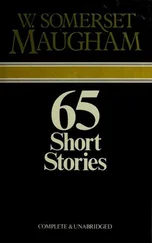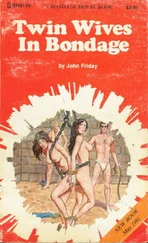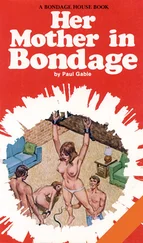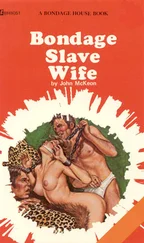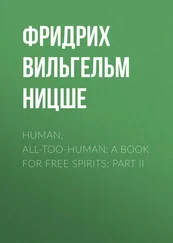Somerset Maugham - Of Human Bondage
Здесь есть возможность читать онлайн «Somerset Maugham - Of Human Bondage» весь текст электронной книги совершенно бесплатно (целиком полную версию без сокращений). В некоторых случаях можно слушать аудио, скачать через торрент в формате fb2 и присутствует краткое содержание. Жанр: Классическая проза, на английском языке. Описание произведения, (предисловие) а так же отзывы посетителей доступны на портале библиотеки ЛибКат.
- Название:Of Human Bondage
- Автор:
- Жанр:
- Год:неизвестен
- ISBN:нет данных
- Рейтинг книги:5 / 5. Голосов: 1
-
Избранное:Добавить в избранное
- Отзывы:
-
Ваша оценка:
- 100
- 1
- 2
- 3
- 4
- 5
Of Human Bondage: краткое содержание, описание и аннотация
Предлагаем к чтению аннотацию, описание, краткое содержание или предисловие (зависит от того, что написал сам автор книги «Of Human Bondage»). Если вы не нашли необходимую информацию о книге — напишите в комментариях, мы постараемся отыскать её.
Of Human Bondage — читать онлайн бесплатно полную книгу (весь текст) целиком
Ниже представлен текст книги, разбитый по страницам. Система сохранения места последней прочитанной страницы, позволяет с удобством читать онлайн бесплатно книгу «Of Human Bondage», без необходимости каждый раз заново искать на чём Вы остановились. Поставьте закладку, и сможете в любой момент перейти на страницу, на которой закончили чтение.
Интервал:
Закладка:
VII
Sunday was a day crowded with incident. Mr. Carey was accustomed to say that he was the only man in his parish who worked seven days a week.
The household got up half an hour earlier than usual. No lying abed for a poor parson on the day of rest, Mr. Carey remarked as Mary Ann knocked at the door punctually at eight. It took Mrs. Carey longer to dress, and she got down to breakfast at nine, a little breathless, only just before her husband. Mr. Carey's boots stood in front of the fire to warm. Prayers were longer than usual, and the breakfast more substantial. After breakfast the Vicar cut thin slices of bread for the communion, and Philip was privileged to cut off the crust. He was sent to the study to fetch a marble paperweight, with which Mr. Carey pressed the bread till it was thin and pulpy, and then it was cut into small squares. The amount was regulated by the weather. On a very bad day few people came to church, and on a very fine one, though many came, few stayed for communion. There were most when it was dry enough to make the walk to church pleasant, but not so fine that people wanted to hurry away.
Then Mrs. Carey brought the communion plate out of the safe, which stood in the pantry, and the Vicar polished it with a chamois leather. At ten the fly drove up, and Mr. Carey got into his boots. Mrs. Carey took several minutes to put on her bonnet, during which the Vicar, in a voluminous cloak, stood in the hall with just such an expression on his face as would have become an early Christian about to be led into the arena. It was extraordinary that after thirty years of marriage his wife could not be ready in time on Sunday morning. At last she came, in black satin; the Vicar did not like colours in a clergyman's wife at any time, but on Sundays he was determined that she should wear black; now and then, in conspiracy with Miss Graves, she ventured a white feather or a pink rose in her bonnet, but the Vicar insisted that it should disappear; he said he would not go to church with the scarlet woman: Mrs. Carey sighed as a woman but obeyed as a wife. They were about to step into the carriage when the Vicar remembered that no one had given him his egg. They knew that he must have an egg for his voice, there were two women in the house, and no one had the least regard for his comfort. Mrs. Carey scolded Mary Ann, and Mary Ann answered that she could not think of everything. She hurried away to fetch an egg, and Mrs. Carey beat it up in a glass of sherry. The Vicar swallowed it at a gulp. The communion plate was stowed in the carriage, and they set off.
The fly came from The Red Lion and had a peculiar smell of stale straw. They drove with both windows closed so that the Vicar should not catch cold. The sexton was waiting at the porch to take the communion plate, and while the Vicar went to the vestry Mrs. Carey and Philip settled themselves in the vicarage pew. Mrs. Carey placed in front of her the sixpenny bit she was accustomed to put in the plate, and gave Philip threepence for the same purpose. The church filled up gradually and the service began.
Philip grew bored during the sermon, but if he fidgetted Mrs. Carey put a gentle hand on his arm and looked at him reproachfully. He regained interest when the final hymn was sung and Mr. Graves passed round with the plate.
When everyone had gone Mrs. Carey went into Miss Graves' pew to have a few words with her while they were waiting for the gentlemen, and Philip went to the vestry. His uncle, the curate, and Mr. Graves were still in their surplices. Mr. Carey gave him the remains of the consecrated bread and told him he might eat it. He had been accustomed to eat it himself, as it seemed blasphemous to throw it away, but Philip's keen appetite relieved him from the duty. Then they counted the money. It consisted of pennies, sixpences and threepenny bits. There were always two single shillings, one put in the plate by the Vicar and the other by Mr. Graves; and sometimes there was a florin. Mr. Graves told the Vicar who had given this. It was always a stranger to Blackstable, and Mr. Carey wondered who he was. But Miss Graves had observed the rash act and was able to tell Mrs. Carey that the stranger came from London, was married and had children. During the drive home Mrs. Carey passed the information on, and the Vicar made up his mind to call on him and ask for a subscription to the Additional Curates Society. Mr. Carey asked if Philip had behaved properly; and Mrs. Carey remarked that Mrs. Wigram had a new mantle, Mr. Cox was not in church, and somebody thought that Miss Phillips was engaged. When they reached the vicarage they all felt that they deserved a substantial dinner.
When this was over Mrs. Carey went to her room to rest, and Mr. Carey lay down on the sofa in the drawing-room for forty winks.
They had tea at five, and the Vicar ate an egg to support himself for evensong. Mrs. Carey did not go to this so that Mary Ann might, but she read the service through and the hymns. Mr. Carey walked to church in the evening, and Philip limped along by his side. The walk through the darkness along the country road strangely impressed him, and the church with all its lights in the distance, coming gradually nearer, seemed very friendly. At first he was shy with his uncle, but little by little grew used to him, and he would slip his hand in his uncle's and walk more easily for the feeling of protection.
They had supper when they got home. Mr. Carey's slippers were waiting for him on a footstool in front of the fire and by their side Philip's, one the shoe of a small boy, the other misshapen and odd. He was dreadfully tired when he went up to bed, and he did not resist when Mary Ann undressed him. She kissed him after she tucked him up, and he began to love her.
VIII
Philip had led always the solitary life of an only child, and his loneliness at the vicarage was no greater than it had been when his mother lived. He made friends with Mary Ann. She was a chubby little person of thirty-five, the daughter of a fisherman, and had come to the vicarage at eighteen; it was her first place and she had no intention of leaving it; but she held a possible marriage as a rod over the timid heads of her master and mistress. Her father and mother lived in a little house off Harbour Street, and she went to see them on her evenings out. Her stories of the sea touched Philip's imagination, and the narrow alleys round the harbour grew rich with the romance which his young fancy lent them. One evening he asked whether he might go home with her; but his aunt was afraid that he might catch something, and his uncle said that evil communications corrupted good manners. He disliked the fisher folk, who were rough, uncouth, and went to chapel. But Philip was more comfortable in the kitchen than in the dining-room, and, whenever he could, he took his toys and played there. His aunt was not sorry. She did not like disorder, and though she recognised that boys must be expected to be untidy she preferred that he should make a mess in the kitchen. If he fidgeted his uncle was apt to grow restless and say it was high time he went to school. Mrs. Carey thought Philip very young for this, and her heart went out to the motherless child; but her attempts to gain his affection were awkward, and the boy, feeling shy, received her demonstrations with so much sullenness that she was mortified. Sometimes she heard his shrill voice raised in laughter in the kitchen, but when she went in, he grew suddenly silent, and he flushed darkly when Mary Ann explained the joke. Mrs. Carey could not see anything amusing in what she heard, and she smiled with constraint.
"He seems happier with Mary Ann than with us, William," she said, when she returned to her sewing.
"One can see he's been very badly brought up. He wants licking into shape."
Читать дальшеИнтервал:
Закладка:
Похожие книги на «Of Human Bondage»
Представляем Вашему вниманию похожие книги на «Of Human Bondage» списком для выбора. Мы отобрали схожую по названию и смыслу литературу в надежде предоставить читателям больше вариантов отыскать новые, интересные, ещё непрочитанные произведения.
Обсуждение, отзывы о книге «Of Human Bondage» и просто собственные мнения читателей. Оставьте ваши комментарии, напишите, что Вы думаете о произведении, его смысле или главных героях. Укажите что конкретно понравилось, а что нет, и почему Вы так считаете.

